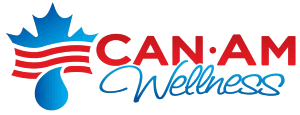Let us look at our options
Here is what researchers say about bottled water.
Despite perceptions that it’s healthier, there is little difference between bottled water and tap water — apart from cost. Bottled water may be no safer, or healthier, than tap water in many countries while selling for up to 1,000 times the price.
Bottled water is the fastest growing beverage industry in the world, worth up to $22 billion a year. But the study, conducted by University of Geneva researcher Catherine Ferrier, said the only difference between some bottled water and tap water is that it is distributed in bottles rather than pipes.
1.5 million tons of plastic are used to bottle water every year. “Toxic chemicals can be released into the environment during the manufacture and disposal of bottles.
In 50% of cases the only difference is that bottled water has added minerals and salts, which do not actually mean the water is healthier.
Bottled water is virtually unregulated.
Bottled water is over priced, over 95% of cost is bottle, label, lid and transportation.
Any time water is stored for a prolonged period of time in a plastic bottle, it will take on traces of the chemicals used in the plastic such as Pthylate and Vinyl Chloride.
According to the FDA, “Companies that market bottled water as being safer than tap water are defrauding the public”
Small Pitcher or Faucet Type Filters
Quote off the inside of the box of the Brita Water filter cartridge;
“Caution! The Brita water filter is not intended to purify water.”
A small gravity filter can not be expected to remove heavy duty pollutants.
As it reduces Chlorine and bad taste, we are given the impression that the water is clean.
Water Works Association has described small cartridge units in a pitcher or that attach to the tap as “totally useless”, because of their size and the brief exposure time.
The presence of organic nutrients in carbon filters can promote bacterial growth, as quickly as overnight. (Taken from the “City of Ottawa” water treatment plant website).
Reverse Osmoses
For every gallon of filtered water, eight gallons go down the drain.
Very slow. Without a holding tank it would take a few hour for one glass of water.
Not effective at removing some bacteria.
Removes all the healthy natural minerals. (*see ‘Calcium’)See Calcium
Maintenance in costly.
The RO membrane can clog or rupture.
Takes up all the space under your sink.
Water has a flat taste.
Distillation
Expensive.
Costly to operate. Every litre costs $0.6 in hydro.
Bacteria growth in the holding tank.
Removes all the healthy minerals.
Water tastes flat.
Many pollutants are not removed.
They are typically not effective at removing organic compounds such as pesticides and Trihalomethanes (THMs). THMs is a known carcinogen.
Common Carbon Filters (G.A.C.s)
Clogs.
Bacteria grows inside.
Channels.
Ineffective at removing lead and other heavy metals and will not soften the water.
Most units are sealed and not cleanable.
No replaceable cartridge.
